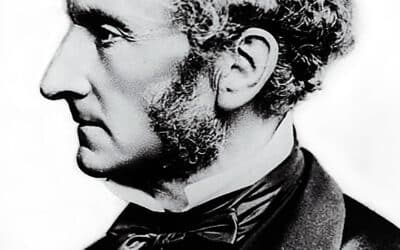Licensing laws establish the standards (e.g. educational) to be met before people are legally permitted to sell specified services. The government says the safety and wellbeing of consumers impels it to enact these laws, which ensure the superior quality of various products and services purchased by consumers, as compared to what would be available in the absence of such laws.
Unfortunately, legal licensing also creates unemployment and underemployment which disproportionately affects the poor, while producing higher incomes for those employed in the protected occupations, higher prices for consumers , with fewer options available to consumers, thus moving us further away from the government’s stated goal.
Medical Licensing
If there could be only one occupation subject to legal licensing, a majority of the public would likely say it should be doctors. However, before the government’s licensure intervention, our ancestors had a different view. In Canadian Medicine, A Study In Restricted Entry (p 125), Ronald Hamowy wrote:
Despite the actions of the College to suppress unregistered physicians, the public continued to firmly oppose prosecution of these practitioners throughout the nineteenth century. Nor did they believe the College and the medical journals when they insisted that their campaign against “quacks” was designed to separate out educated from unqualified physicians.
. . . many, especially poorer, Canadians persisted in consulting unlicensed physicians, whose fees were lower and who appeared no less competent in prescribing medications than did their registered brethren. The profession’s attempt to suppress these doctors was not motivated out of a selfless interest in improving the quality of medical care offered the public, but out of a desire to lessen competition, which would in turn increase their incomes.
For more than two hundred years, economists, including Milton Friedman, have recognized the ulterior motives underlying the imposition of licensure laws. As economist Murray Rothbard wrote (p 1,097):
How much these requirements are designed to “protect” the health of the public, and how much to restrict competition, may be gauged from the fact that giving medical advice free without a license is rarely a legal offense. Only the sale of medical advice requires a license. Since someone may be injured as much, if not more, by free medical advice than by purchased advice, the major purpose of the regulation is clearly to restrict competition rather than to safeguard the public.
Without coercive licensing laws, consumers would consult market-based sources to determine the qualifications of physicians. Hamowy (pp 328, 77) wrote about “certification”:
By certification I mean the endorsement, either through examination or by some other method, of medical practitioners by some semi-public or private body that is not legally empowered to restrict entry into the profession nor to prevent the practice of uncertified physicians.
… there is no hard evidence that licensing, as opposed to certification, improves the quality of physician care available to the public; indeed, there is a good deal of evidence that suggests the contrary is true. And doubtless these effects account for why medical licensing laws have originally been enacted at the urging of the profession itself, and have seldom been promoted by the consumers of medical care, their supposed beneficiaries.
As it is in the medical field, so it is with virtually every occupation subject to licensing. Various occupational associations, not consumers, lobby the government to enact new licensing laws or add new restrictions to the current laws.
Recognizing that licensure in the medical field is counterproductive, it should be obvious that all licensure should be abolished. From eyebrow threading, to dog-sitting , to florists, to strippers, to hair braiding, to mowing lawns, there are numerous occupations where licensing serves no other purpose than to provide revenue for the government and benefits for entrenched interests, all at the expense of consumers and job-seekers.
Studies have shown that licensure reduces the quantity of people employed in the licensed occupations, which, because competition has been coercively suppressed, often results in a reduced quality of services offered to the public, which is the exact opposite of what the government promises us.
The Government Doesn’t Practice what it Preaches
The government’s true concern about risks to the public are often exposed by the fact the government frequently ignores its own licensing laws. Nor does the way the laws are enforced convince one that the laws exist to protect consumers. Here are just two examples.
First, in Ontario, all long-term care homes must be licensed or approved, and are subject to regular government inspections. However, the government has scaled back its inspections , including reduced inspections of dining practices “when at least three homes have been sued for alleged mistakes that caused residents to choke to death.” In what appears to be a typical bureaucratic response to one of the choking deaths, the government conducted an investigation and produced a six-page report announcing that “The licensee has failed to [follow proper procedures].” Was the license revoked? No.
Second, an investigation into the deplorable living conditions of a tenant in London, Ontario revealed that City Hall disobeyed its own by-law governing the licensing of residential rental units, as well as the Ontario Residential Tenancies Act .
The government’s hypocrisy – or incompetence – is clearly evident. The word ‘license’ is not synonymous with ‘competence.’
Nor is the word ‘politician.’






